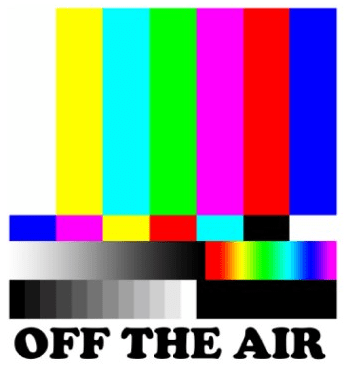 WASHINGTON — While the nation celebrated the holiday weekend of independence, New Jersey’s public television network signed off for the last time and many other PBS stations around the US may soon follow suit.
WASHINGTON — While the nation celebrated the holiday weekend of independence, New Jersey’s public television network signed off for the last time and many other PBS stations around the US may soon follow suit.
The reason: cuts in funding from state governments across the country.
As I had written about on the blog last December, NJN has finally come to the end of its broadcasting days.
The final New Jersey newscast on NJN was Thursday night. At its end, viewers saw a simple sign, “New Jersey Network. April 5, 1971 – June 30, 2011.” As of that night, 130 employees were immediately laid off.
New Jersey public television transmitters will now carry programming from WNET in New York City, under a plan that the state legislature tried unsuccessfully to block in late June.
Public radio was also affected by the closure: NJ Network’s nine public radio stations were sold to New York Public Radio (WNYC / WQXR) and Philadelphia’s WHYY-TV/FM, as detailed in an article in Current magazine.
The same day that the New Jersey Network went dark, viewers in Charlotte, North Carolina, learned that their public television station, WTVI, was also in jeopardy of going off the air.
After a “disastrous” drop in fundraising, WTVI may exhaust its cash reserves to make up its current deficit of $300,000, according to WTVI’s treasurer, C. Lal Vishin.
“Within a year or two, if nothing changes, the lights go out,” Vishin told the station’s board Thursday, according to the Charlotte Observer. “If we go with a deficit like this, we have one more year to live.”
In Orlando, the longtime public television station, WFME-TV, canceled all PBS programming at the end of June as well. The station itself has been sold to a religious broadcaster. And in the wake of the sale, a weaker educational broadcaster in the area is scrambling to pick up the PBS programs. So far though, there is no word on whether Orlando cable television systems will even carry the station.
Nationwide, state aid to public television and radio dropped more than 25% in two years – from $270 million in FY 2008 to $210 million in 2010, according to a state-by-state survey in Current magazine. Declining state support coupled with the poor U.S. economy, stations face even larger total cuts. One general manager told me his public television station’s revenues have declined 63%.
But last week also brought some last-minute reprieves:
— South Carolina’s ETV network survived last week’s threat by Gov. Nikki Haley to defund the network.
— In Kansas, public radio may receive most of the state funding originally budgeted for them, but stations will still need to reduce their spending.
— In Maine, the state legislature blocked the governor’s proposal to eliminate all funding for public broadcasting, however state lawmakers did reduce public broadcast funding by $200,000.
— In Minnesota, the AP reported that the shutdown of that state’s government brought an immediate halt to radio services for the blind.
And if you missed it last Thursday, the FCC signaled it is ready to begin the rollout of the “Open Internet” rules, also known as Net Neutrality, with a Public Notice of initial guidance on compliance. But many, including FCC Commissioner Robert McDowell, predict court challenges will delay implementation for months – or possibly indefinitely. McDowell told Fox News that “a lot” of companies are readying court challenges, and he expects the new rules to be suspended while those challenges move through the legal system.